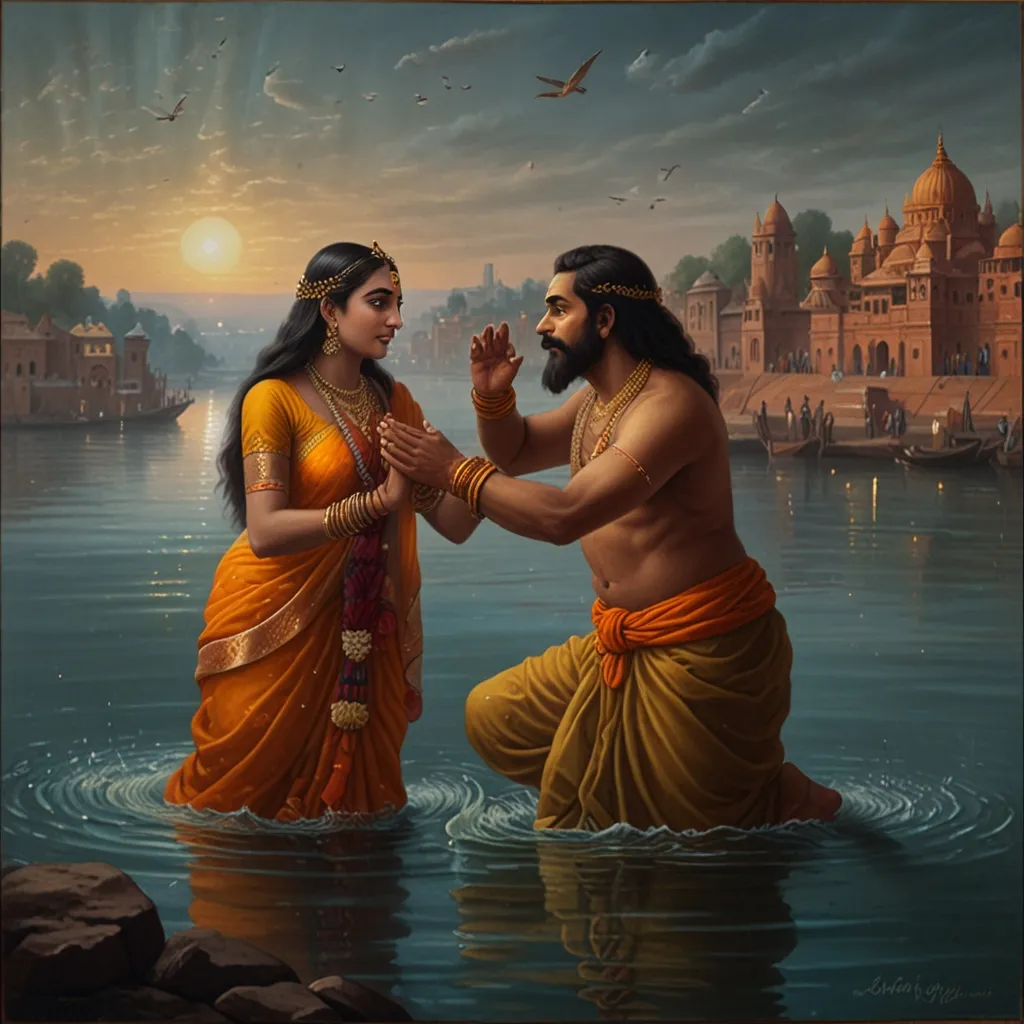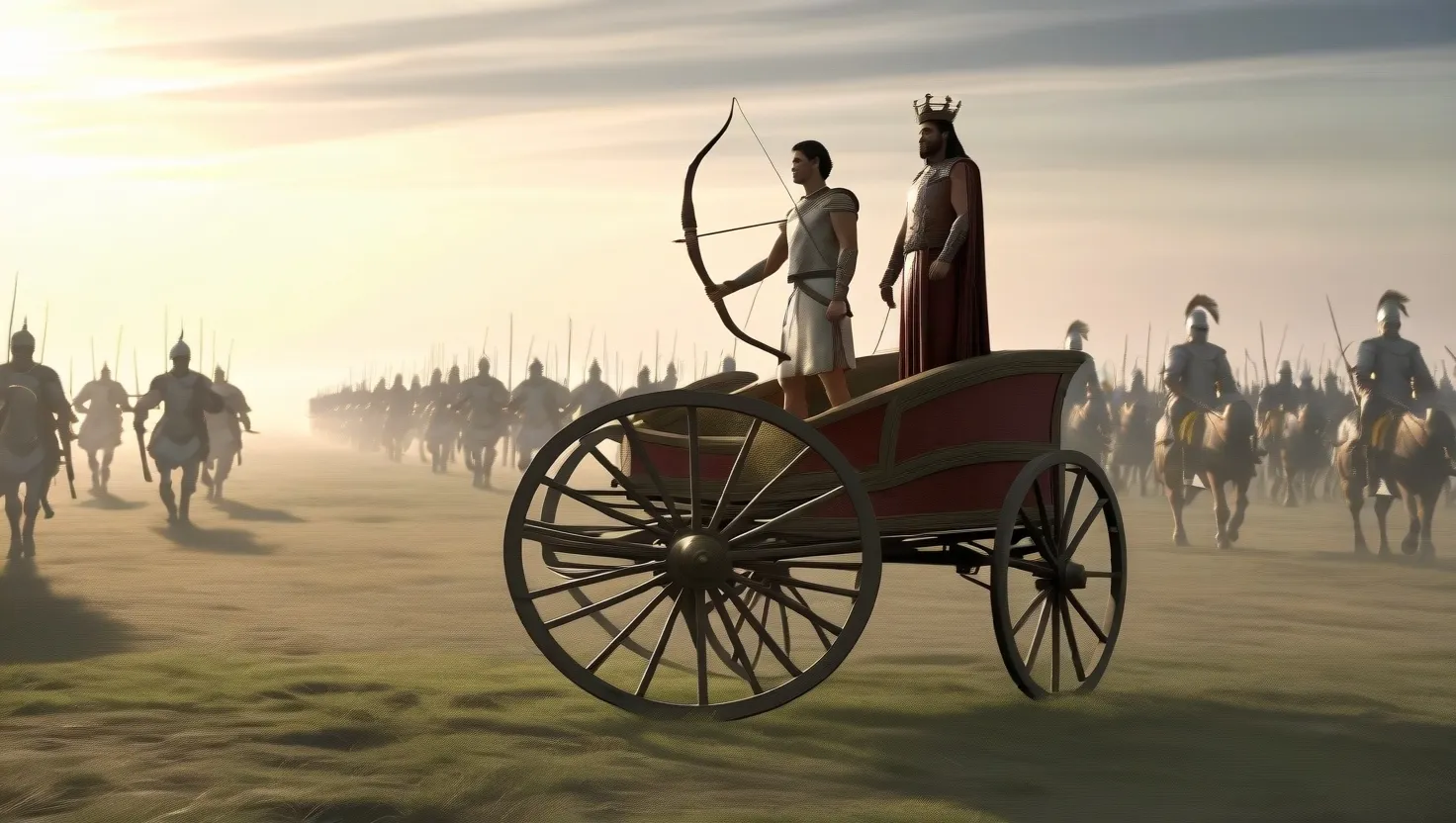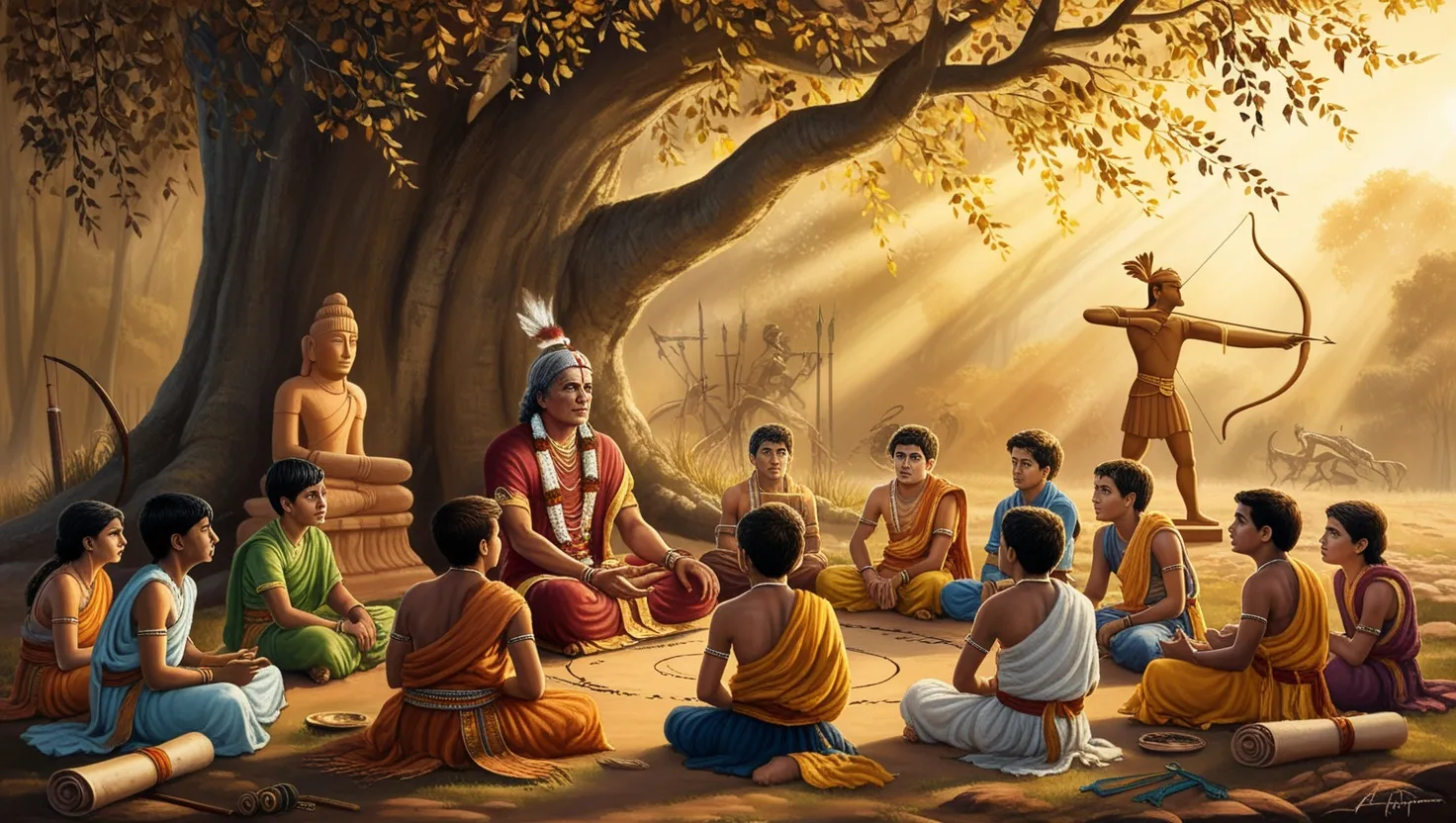In the legendary kingdom of Hastinapura, long before the heroes and battles we often hear about, there was a king named Shantanu. This guy was not just any ruler, but one who was hailed for his wisdom and courage. His people adored him, and he ruled with a sense of justice that earned him boundless respect.
One fateful day, Shantanu took a leisurely stroll by the banks of the Ganges River. There, amidst the serene waters and whispering breeze, he laid eyes on an extraordinarily beautiful woman. It was none other than Ganga, the river goddess herself, who had taken human form. Captivated by her beauty, Shantanu didn’t waste any time and quickly proposed marriage to her.
Ganga agreed but laid down one strict condition: he must never question her actions, no matter how bizarre or inexplicable they might seem. Deeply in love, Shantanu accepted without batting an eyelid. The couple soon got married and enjoyed a blissful life together.
But this happiness was short-lived. When their first child came into the world, Ganga did something unthinkable. She took the baby to the river and drowned him. Shantanu was heartbroken and shocked but remembered his vow and kept silent. This heart-wrenching scene repeated itself six more times. Ganga drowned each of their newborn children, and Shantanu, bound by his promise, could only watch in silent agony.
When the eighth child was born, Shantanu hit his breaking point. As Ganga was about to drown this newborn, he intervened. “Stop!” he cried out in grief and frustration. “Why do you kill our children? You are as cruel as you are beautiful!”
With a sorrowful but determined look, Ganga revealed her true identity and the divine purpose behind her actions. The eight children were actually the Vasus, gods of the eight elements, who had been cursed by the sage Vashishtha for stealing his wish-granting cow. The only way to free them from this curse was to drown them immediately after birth. However, the eighth child was destined to live a longer life. She named him Devavrata and promised to train him in the ways of kingship before taking him to the heavens.
Shantanu was devastated. He had lost not just his wife but his children too. Ganga took Devavrata and disappeared into the river, leaving Shantanu to rule his kingdom alone, heart heavy with sorrow. His days were spent ruling his land, but his nights were haunted by dreams of his lost family.
Years passed, but Shantanu’s grief didn’t fade. One day, while wandering along the river again, he saw a strikingly handsome young man who somehow seemed familiar. The young man approached Shantanu and revealed himself to be Devavrata, now well-trained and educated by the great sage Vashishtha and the legendary warrior Parashurama. Overjoyed to see his son again, Shantanu named him the crown prince.
Devavrata, who would later be known as Bhishma, grew up to be a just and brave prince. His role in the future of Hastinapura would be nothing short of crucial. This story of Shantanu and Ganga stands as a testament to the unyielding power of love and the inevitability of destiny. It serves as a poignant reminder that sometimes, actions that seem inexplicable are part of a larger, divine plan.
Shantanu’s life wasn’t done with twists and turns yet. He happened upon Satyavati, a beautiful woman living by the Yamuna River. She was the adopted daughter of a fisherman chief. Shantanu fell head over heels for her and proposed. However, Satyavati’s father laid down a heavy condition: her son had to be the heir to the throne.
Caught between his love for Satyavati and his duty to Devavrata, now the crown prince, Shantanu found himself in a real pickle. sensing his father’s turmoil, Devavrata made an extraordinary vow. He promised never to marry or claim the throne, ensuring that Satyavati’s son would be the future king. This vow was so extreme and selfless that it earned him the name “Bhishma,” meaning “the one who has taken a terrible vow.”
With Bhishma’s vow, Shantanu and Satyavati married and had two sons, Chitrangada and Vichitravirya. When Shantanu passed away, Chitrangada took over but was soon killed in battle. Vichitravirya, still too young, became king. Staying true to his vow, Bhishma remained a celibate guardian, dedicating his life to serving his family and kingdom.
The tale of Shantanu and Ganga is a melancholic yet enriching story, weaving elements of love, duty, and complex human relationships. It delves into themes of fate, sacrifice, and the staying power of love. In the grand narrative of the Mahabharata, their story serves as a significant thread that connects various destinies, shaping history in ways both profound and unpredictable.
Shantanu’s story is a roller coaster of emotions and profound lessons. It’s a reminder that love can make us do crazy things, and sometimes, life’s most heartbreaking challenges come with hidden purposes. Whether it’s making monumental sacrifices or keeping your promises against all odds, the tale of Shantanu, Ganga, and their family is timeless. These stories aren’t just about the past but continue to resonate through time, making us ponder about our own lives and choices.






